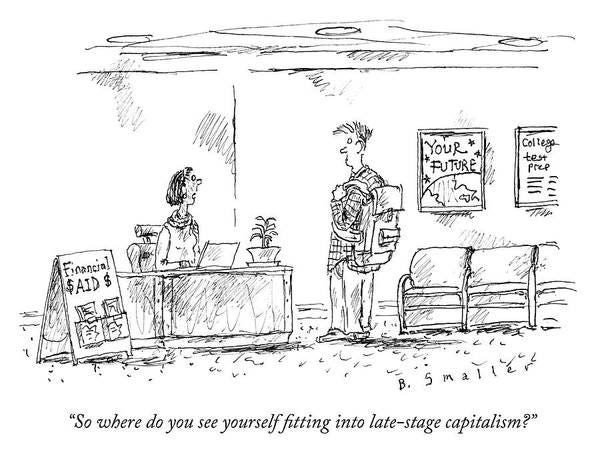#71 - wecrashed
is just a euphemism for we did exactly what the rules of the game told us to do.
If you value what you read and would like to support my work, consider Buying Me A Coffee, leaving a heart/comment on this post below, or sharing this journal with another human. If you’re not a subscriber yet, join us!
THANK YOU, LOVE YOU.
Halfway through watching WeCrashed on Apple TV, the 8-episode drama that tells the story of Adam and Rebekah Neumann building the global co-working space, WeWork, I was ready to cut my losses.
Perhaps I had already read too much during the height of the IPO fiasco in 2019, but in general, I felt fatigued by our contemporary Shakespearian soap opera that keenly facilitates the rise of the lone dreamer, the magical saviour, the tech genius, applauds and funds their reckless ambition, and then as quickly, orchestrates their fall and demonization. It is the plot that allows capitalism to continue with the least amount of friction; erasing a person is much easier than erasing a community.
Anyhow, C was intent on finishing it, so I extended our Apple TV free trial and gave them four more hours of my life, which wasn’t all terrible because Anne Hathaway and Jared Leto were outstanding.
Later when I couldn’t sleep and kept thinking about the show, I resented it all over again. But my occupation showed that WeCrashed succeeded in leaving the audience slightly confused about how to feel about it all, which I suggest is by design: when you are confused, it is difficult to act, to take a stance.
The show presents Adam and Miguel, the co-founders of WeWork, as just regular people with an innocent dream: to experience the same feeling of community they had growing up on a Kibbutz in Israel and a commune in Oregon. There is a purity to the dream that most people can relate to and mirrors the ways that our childhood joys, wounds and experiences with money, power and love, often inform what we create and advocate for in our later years.
I can definitely relate to this on many levels.
It is evident that Adam holds some unresolved pain/stuff from his parent’s splitting when he was young, having to move around with his mom and sister, before landing on the kibbutz - the first place he ever felt like he belonged. I suppose the point of deep diving into these entrepreneurial stories is to connect the personal with the professional, the vision with the seed, the individual with the system — and find some compassion within the complexity of all of it.
I felt that, I really did.
Dreamers are captivating folk and Adam certainly has that quality of conviction and fortitude that is needed to birth alternative possible futures. Holding the imaginary in your heart and bones is a real and important labour.
But this is my contention with the Neumanns: they say they want to change the world, but for who exactly? Adam is bold - but lacks the courage to understand and tackle the roots of loneliness. He is a ‘retro-futurist’ - stripping down a sacred experience (community) to fit into the framework of late-stage capitalism rather than imagining a wholly new paradigm. The Neumanns co-opted the language of liberation, not to raise consciousness, but to win. The story of WeWork is an understanding of power and leadership as possession and exploitation rather than honour and responsibility.
They are so irresponsible it is infuriating. And the show's insistence on infantilizing their irresponsibility, using their personal histories, insecurities and family challenges as subtle justification for a complete and utter lack of humility, really grated my nerves. I would hope they both have therapists, but the show indicates little to no self-awareness, personal reflection or the capacity to give or take feedback on the nature of their leadership. Rebekah played the role of support system for Adam, possessing the fortitude of belief in him, but did not seem to put her yogic teachings into practice by holding him accountable or inquiring about the ways he cared for the future and well-being of his team. Her unlike-ability is a function of leading with her ego while pretending to be enlightened. Their collective god-complex leadership is not inspiring or interesting; it is delusional and dangerous.
A constant device used in the show is Adam running around screaming, ‘we spend to grow, we spend to grow’ - which is the playbook of tech startups that have certainly made many people wealthy. Growth at all costs inherently has a cost — whether it is the destruction of communities, the destruction of land, or the destruction of the human body. A friend from Mexico City was telling me they were forced to leave her apartment when WeWork made a bully offer to the landlord to take over the building…
I thought a lot about where I stand on the idea of the ‘lone hero’ and people like Bell Hooks, Audre Lorde, Nelson Mandela and Desmond Tutu came to mind — all individuals who have had a profound impact on our conceptions of peace, freedom, love, and equity. They brought forth an idea of who we could be and allowed many to participate and translate their ideas into forms and structures of change and expression. What makes them visionaries is a leadership rooted in invitation and cultivation and a recognition that change takes many hands.
I don’t actually care that WeWork burned through investor money. Overworking and underpaying employees while being dishonest about the company’s financial situation, dangling the carrot of payday while offering free booze in the meantime is exploitation. They callously dismissed and disposed of people who dared to question them and we see Adam constantly using abusive ultimatums as a leadership style (‘if you don’t like it, you can leave). Following the IPO-fall out, Adam shows very little signs of remorse for anyone but himself. He tells Miguel he loves him, but will he take care of him? After walking away with $2.8 billion, he famously said he regretted the impact of the IPO mess on their employees, but was not sorry because they knew the risk they were taking when joining WeWork. How exactly did WeWork change work?
We live in a culture that has a distorted sense of what work is. In capitalist fiction, hard work is rewarded with impunity - Adam can do whatever he wants and deserves whatever he wants because he is a ‘visionary’ who ‘works hard’ and ‘hustles’ and ‘makes investors rich.’ His actions led to almost no consequences - except a brief moment of mania when his reputation was being momentarily demolished, and having to experience personal sadness of letting his baby go. Maybe he learned from his mistakes? Most recently, he raised $70 million to start a new company in the crypto space.
We rarely, if ever, afford the same grace to the working class - who also work hard to keep capitalism running, but seemingly barely deserve a living wage, safe working conditions and employment protections. The hypocrisy in our narratives and language is revolting. Qualifying work as ‘hard,’ ‘easy’ or ‘important’ is what sustains the rationale for exploitation.
Adam set out to change work but in the end, showed to have very little idea of what work, dignified work, actually is. I wonder if WeCrashed would be more aptly named, ‘we did exactly what the rules of the game told us to.’
Be well,
Hima
P.S. Did you watch the show? I want to know what you took away from it. Let’s agree and disagree!
#ThisWeekinTweets































I also haven't watched this particular series; however, I had similar sentiments with other series on the rise and fall of influential figures. "The Dropout" about Elizabeth Holmes and Theranos. Anna Delvey in "Inventing Anna". Sarma Melngailis and Anthony Strangis in Netflix’s “Bad Vegan.” “LuLaRich” on the the (still active) apparent pyramid scheme LuLaRoe. The list goes on. As you articulated, the theme of these narratives is "we did exactly what the rules of the game told us to do".
As we continue to have shared dialogue and discourse, my hope is that we are able o not just collectively change the rules, but reframe the whole game to one of love and equality. I'm currently reading "All About Love" by bell hooks, which shares the antidotes to many of these ills.
Thanks Hima for writing another piece that connected more dots for me.
I haven’t watched it, but I’m guessing I’d have a similar reaction. Loved your reflections as always 💜